Related Research Articles
Technology assessment is a practical process of determining the value of a new or emerging technology in and of itself or against existing technologies. This is a means of assessing and rating the new technology from the time when it was first developed to the time when it is potentially accepted by the public and authorities for further use. In essence, TA could be defined as "a form of policy research that examines short- and long term consequences of the application of technology."
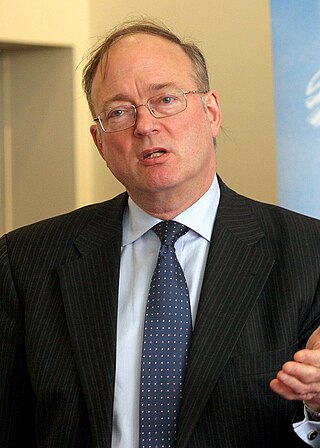
Malcolm John Charles Harbour, CBE, is a British Conservative Party politician who was a Member of the European Parliament (MEP) for the West Midlands between 1999 and July 2014. He is a member of the European Conservatives and Reformists Group and the chairman of the Committee on Internal Market and Consumer Protection.
Terence Wynn is a former British politician who served in the European Parliament.

Jerzy Karol Buzek is a Polish politician and Member of the European Parliament from Poland. He has served as Prime Minister of Poland from 1997 to 2001, since being elected to the European Parliament in 2004, he served as President of the European Parliament between 2009 and 2012. He is married to Ludgarda Buzek and is the father of Polish actress Agata Buzek.

The Secretariat of the European Parliament is the administrative body of the European Parliament headed by a Secretary-General. It is based in the Kirchberg district of Luxembourg City and around the Brussels-Luxembourg Station in Brussels and employs 4000 officials.
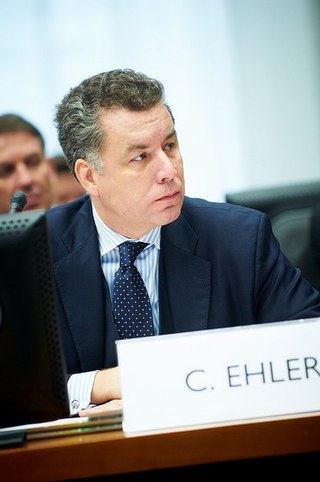
Jan Christian Ehler is a German politician who has been serving as a Member of the European Parliament since 2004. He is a member of the Christian Democratic Union, part of the European People's Party.
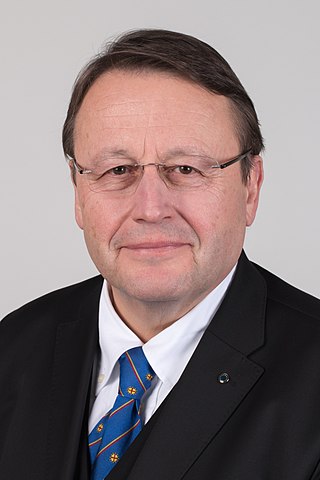
Paul Rübig is an Austrian politician who served as a Member of the European Parliament (MEP) from 1996 until 2019. He is a member of the Austrian People's Party, part of the European People's Party.

The Directorate-General for Communications Networks, Content and Technology is a Directorate-General of the European Commission and is responsible for EU investment in research, innovation and development of critical digital technologies.
Nello Cristianini is a professor of Artificial Intelligence in the Department of Computer Science at the University of Bath.
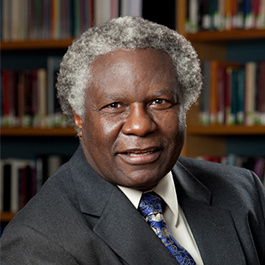
Calestous Juma was a Kenyan scientist and academic, specializing in sustainable development. He was named one of the most influential 100 Africans in 2012, 2013 and 2014 by the New African magazine. He was Professor of the Practice of International Development and Faculty Chair of the Innovation for Economic Development Executive Program at Harvard Kennedy School. Juma was Director of the School's Science, Technology and Globalization Project at Harvard Kennedy School as well as the Agricultural Innovation in Africa Project funded by the Bill and Melinda Gates Foundation. His last book, Innovation and Its Enemies: Why People Resist New Technologies, was published by Oxford University Press in 2016.
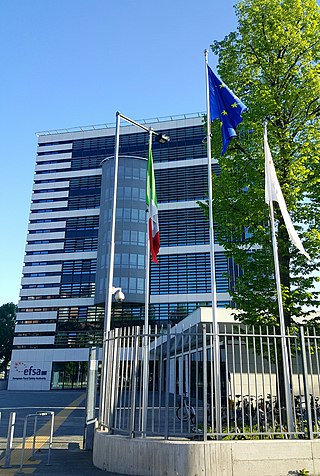
The European Food Safety Authority (EFSA) is the agency of the European Union (EU) that provides independent scientific advice and communicates on existing and emerging risks associated with the food chain. EFSA was established in February 2002, is based in Parma, Italy, and for 2021 it has a budget of €118.6 million, and a total staff of 542.
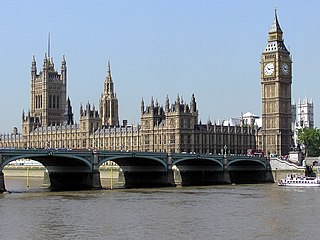
The Parliamentary Office of Science and Technology (POST) is the Parliament of the United Kingdom's in-house source of independent, balanced and accessible analysis of public policy issues related to science and technology. POST serves both Houses of Parliament.

Marc Rotenberg is president and founder of the Center for AI and Digital Policy, an independent non-profit organization, incorporated in Washington, D.C. Rotenberg is the editor of The AI Policy Sourcebook, a member of the OECD Expert Group on AI, and helped draft the Universal Guidelines for AI. He teaches the GDPR and privacy law at Georgetown Law and is coauthor of Privacy Law and Society and The Privacy Law Sourcebook (2020). Rotenberg is a founding board member and former chair of the Public Interest Registry, which manages the .ORG domain.

The European Parliamentary Technology Assessment (EPTA) is a network of technology assessment (TA) institutions specialising in advising parliamentary bodies in Europe.
The European Technology Assessment Group (ETAG) is a cooperative network of scientific institutions that carries out studies in the field of technology assessment on behalf of the European Parliament.

Ramona Nicole Mănescu is a Romanian politician and lawyer. From 24 July 2019 to 4 November 2019, she served as minister of Foreign Affairs in the Romanian Government. She was a Member of the European Parliament serving 2007 to 2013 and 2014 to 2019 from the National Liberal Party, active within the European People's Party. As part of this group she is a member of the European Parliament Committee on Foreign Affairs, vice-chair in the Delegation for relations with the Mashreq countries and a substitute member in the Committee on transport and tourism and in Delegation for relations with the Arab Peninsula.

Monika Panayotova is a Doctor of Political Science, with interests in the field of the EU security and defence policy. Bulgarian politician – Monika Panayotova has been appointed as Deputy Minister for the Bulgarian Presidency of the Council of the EU 2018, responsible for the relations with the European Parliament during the Bulgaria's presidency since June 28, 2017.
The European Parliamentary Research Service (EPRS) is the in-house research department and think tank of the European Parliament, providing research and analytical support to the members of the European Parliament, its parliamentary committees and the Parliament as a whole. It was created in November 2013 as a directorate-general within the Parliament's permanent administration. The EPRS philosophy is to provide independent, objective and authoritative analysis of, and research on, policy issues relating to the European Union, in order to assist Members in their parliamentary work.
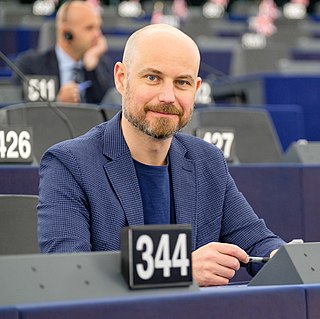
Vladimír Bilčík is a Slovak university lecturer and politician of the Slovak party Democrats. He has been serving as a Member of the European Parliament since 2019.
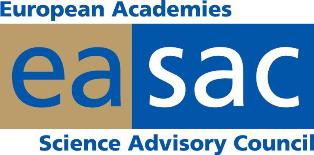
The European Academies' Science Advisory Council (EASAC) is a regional association of National Academies of science. Its members are 25 National Science Academies of the Member States of the European Union (EU), and the National Science Academies of Norway, Switzerland and the UK. Malta and Luxembourg do not have National Academies of Science. A pan-European Academy (Academia Europaea) and a network of all Academies from across the continent of Europe also have membership (ALLEA). EASAC was founded in June 2001 and was headquartered at the German National Academy of Sciences Leopoldina in Halle (Saale) until 31 December 2022.
References
- ↑ "STOA Panel". Europarl.europa.eu.